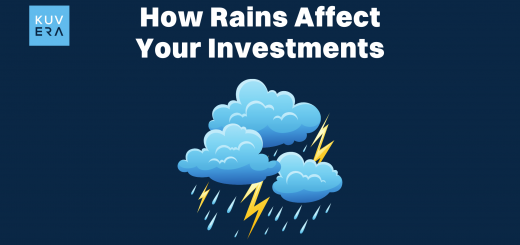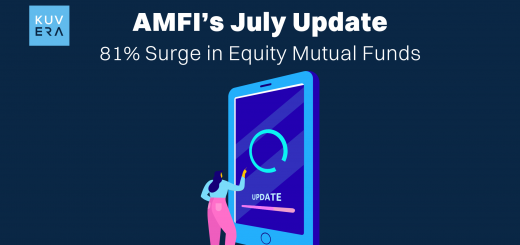There are different types of passive funds India available to investors. These invest in different asset classes like stocks, bonds, commodities, and other mutual funds.
In the dynamic world of passive funds investing, striking the right balance between risk and return is paramount. While equity investments can offer the potential for high growth, they also come with inherent volatility. This is where debt index funds step in, providing a relatively safer avenue for investors seeking stable returns and lower risk.
Let us learn more about debt index funds, top debt index funds and benefits of investing in these funds.
Understanding Debt Index Funds
Debt index funds are a type of mutual fund that invests in a portfolio of fixed-income securities, such as government bonds, corporate bonds, and treasury bills. These funds aim to replicate the performance of a specific debt market index, such as the CRISIL Composite Bond Fund Index or the Nifty Bharat Bond Index. By mirroring the index’s composition, debt index funds offer investors a convenient way to gain exposure to a diversified portfolio of bonds without the need for active selection.
Key features of debt index funds are as follows:
1. Passively Managed
They track a specific index, eliminating the need for active stock picking by a fund manager. This often translates to lower expense ratios compared to actively managed funds.
2. Lower Risk
Compared to equity funds, debt index funds generally carry lower risk due to the relatively stable nature of fixed-income securities. However, it’s important to remember that debt funds are not risk-free.
3. Stable Returns
They aim to provide steady returns, making them suitable for conservative investors and those seeking regular income.
4. Diversification
By investing in a basket of bonds, they offer diversification and reduce the risk associated with individual bond defaults.
5. Lower Costs
Passively managed funds typically have lower expense ratios than actively managed funds, as they don’t incur the costs associated with active research and trading.
Why Consider Debt Index Funds?
Debt index funds offer several advantages for investors. These are as follows:
1. Predictable Returns
The returns of a debt index fund are linked to the performance of the underlying index, making them more predictable compared to actively managed funds.
2. Capital Preservation
They prioritise capital preservation, making them suitable for risk-averse investors and those approaching retirement.
3. Regular Income
Many debt funds distribute interest income generated from the underlying bonds, providing a regular income stream for investors.
4. Liquidity
They offer good liquidity, allowing investors to buy and sell units easily on stock exchanges.
5. Transparency
The portfolio holdings of a debt index fund are readily available, providing transparency to investors about where their money is invested.
Top 10 Debt Index Funds in India
Choosing the right debt index fund can be challenging given the plethora of options available. Here is a look at the top 10 debt index funds in India based on their 1-year and 3-year returns (as of November 15, 2023):
Top 10 Debt Index Funds (1-Year Returns)
| Fund Name | 1-Year Return (%) |
|---|---|
| UTI Nifty SDL Apr 2027 Index Fund | 7.98 |
| Edelweiss CRISIL IBX SDL Index Fund - April 2027 | 7.97 |
| SBI CRISIL IBX SDL Index Fund - April 2027 | 7.96 |
| HDFC Nifty SDL Apr 2027 Index Fund | 7.93 |
| ICICI Prudential Nifty SDL Apr 2027 Index Fund | 7.87 |
| IDFC CRISIL IBX Gilt Index Fund - April 2028 | 7.79 |
| Axis CRISIL IBX SDL Index Fund - April 2027 | 7.78 |
| Aditya Birla Sun Life CRISIL IBX SDL Index Fund - April 2027 | 7.77 |
| Nippon India CRISIL IBX Gilt Index Fund - April 2028 | 7.71 |
| Kotak CRISIL IBX Gilt Index Fund - April 2028 | 7.67 |
Source: AMFI India
Top 10 Debt Index Funds (3-Year Returns)
| Fund Name | 3-Year Return (%) |
|---|---|
| Edelweiss CRISIL IBX SDL Index Fund - April 2026 | 7.18 |
| UTI Nifty SDL Apr 2026 Index Fund | 7.16 |
| SBI Magnum Constant Maturity Fund | 7.03 |
| HDFC Nifty SDL Apr 2026 Index Fund | 7.01 |
| ICICI Prudential Nifty SDL Apr 2026 Index Fund | 6.98 |
| Aditya Birla Sun Life CRISIL IBX SDL Index Fund - April 2026 | 6.93 |
| Axis CRISIL IBX SDL Index Fund - April 2026 | 6.89 |
| IDFC CRISIL IBX SDL Index Fund - April 2026 | 6.87 |
| Kotak Nifty SDL Apr 2026 Index Fund | 6.79 |
| Nippon India CRISIL IBX SDL Index Fund - April 2026 | 6.77 |
Source: AMFI India
Looking at the returns tables above, it is important to note that past performance of mutual funds is not indicative of future results. It is crucial to conduct thorough research and consider your investment goals and risk appetite before investing in any debt index fund.
Factors to Consider When Choosing a Debt Index Fund
1. Investment Horizon
You can align the fund’s duration (average maturity of the underlying bonds) with your investment horizon. If you have a longer investment horizon, you may consider funds with longer durations, while shorter durations are generally suitable for shorter-term goals.
2. Risk Appetite
Investors need to consider your risk tolerance and choose a fund accordingly. Funds with higher durations tend to be more sensitive to interest rate changes, while those with lower durations are relatively less volatile.
3. Expense Ratio
Opting for funds with lower expense ratios can help maximise potential returns. Since debt index funds are passively managed, the expense ratios are typically lower than actively managed funds.
4. Tracking Error
It can help to evaluate the fund’s tracking error, which measures how closely it tracks the performance of the underlying index. A lower tracking error indicates better replication of the index.
5. Credit Quality
You need to assess the credit quality of the bonds in the fund’s portfolio. Funds investing in higher-rated bonds generally carry lower credit risk, while those with lower-rated bonds may offer higher yields but also come with higher risk.
Wrapping Up
Debt index funds offer a compelling investment option for those seeking stable returns and a lower risk profile. By understanding the basics of debt index funds and considering the factors mentioned above, you can make informed investment decisions and achieve your financial goals. While these funds can be less riskier than equity-based funds, it is important to align your investments with your goals and create a balanced portfolio.
Interested in how we think about the markets?
Read more: Zen And The Art Of Investing
Watch here: Is UPI Killing the Toffee Business?












